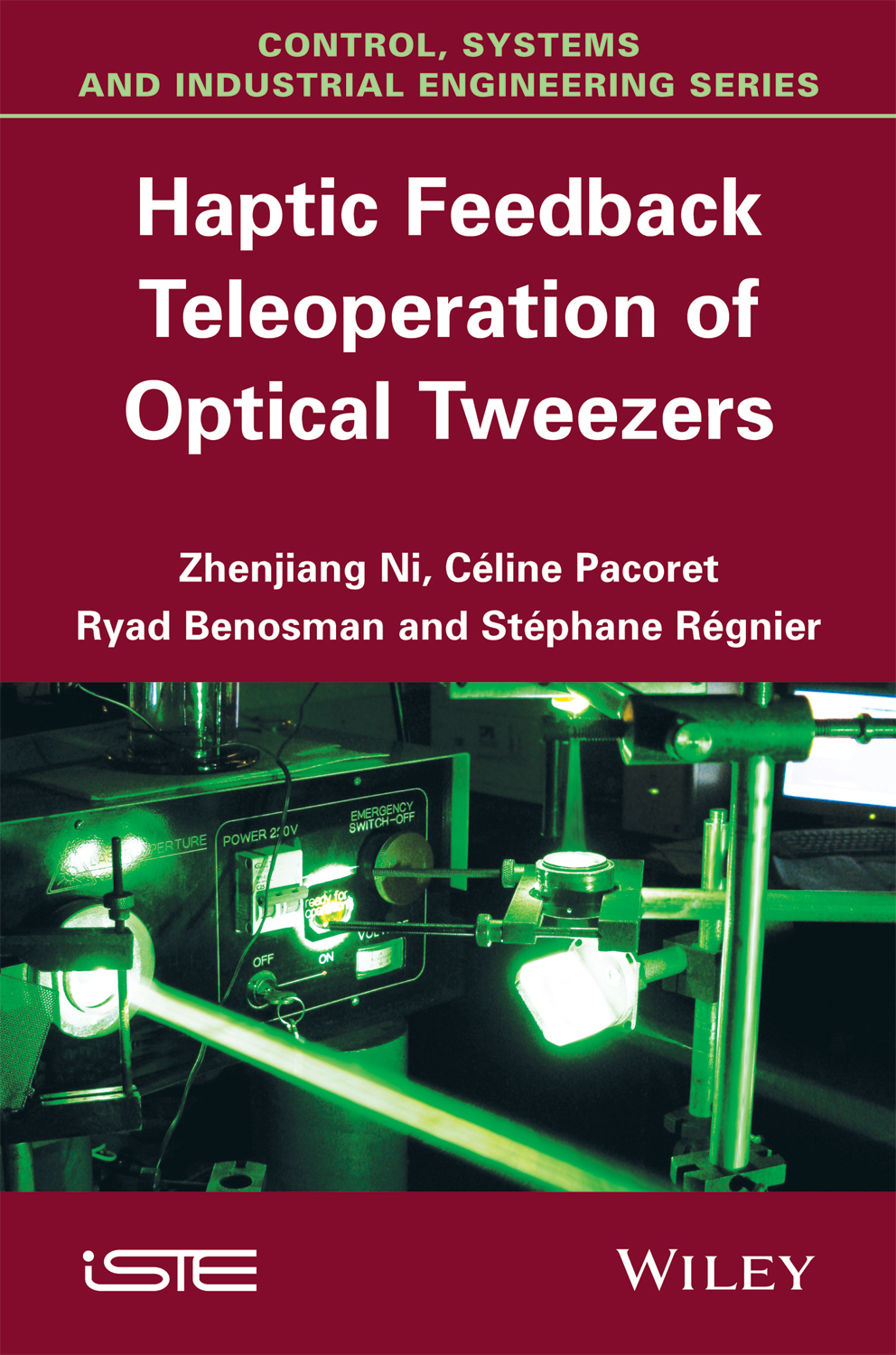
The authors of this book provide the first review of haptic optical tweezers, a new technique which brings together force feedback teleoperation and optical tweezers. This technique allows users to explore the microworld by sensing and exerting piconewton-scale forces with trapped microspheres. The design of optical tweezers for high-quality haptic feedback is challenging, given the […]
The authors of this book provide the first review of haptic optical tweezers, a new technique which brings together force feedback teleoperation and optical tweezers.
This technique allows users to explore the microworld by sensing and exerting piconewton-scale forces with trapped microspheres. The design of optical tweezers for high-quality haptic feedback is challenging, given the requirements for very high sensitivity and dynamic stability. The concept, design process and specification of optical tweezers reviewed throughout this book focus on those intended for haptic teleoperation. The authors provide two new specific designs as well as the current state of the art. Furthermore, the remaining important issues are identified for further developments. Haptic optical tweezers will soon become an invaluable tool for force feedback micromanipulation of biological samples and nano- and micro-assembly parts.
